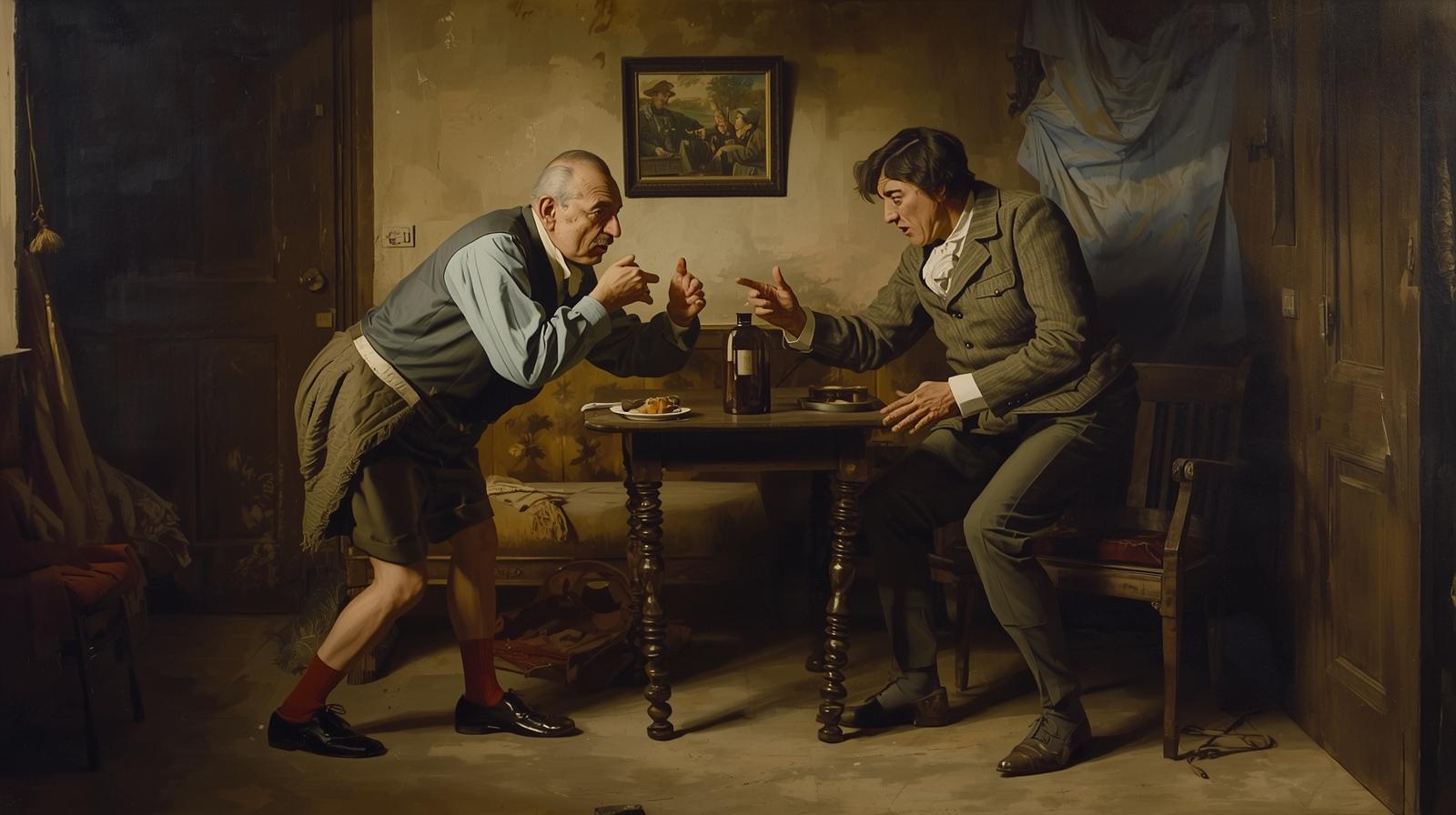Katherine Mansfield’s “The Little Girl” centers around young Kezia and her parents, exemplifying the impacts of emotional neglect inflicted by domineering parents on a young girl. Drawing from early 20th-century family dynamics, it portrays a typical patriarchal household characterised by strict rules and regulations.

Summary and Analysis (The Little Girl)
.Kezia is an innocent, timid girl who struggles to communicate with her parents. She fears her father, who is primarily concerned with enforcing rules and expects absolute obedience and compliance from his daughter. In his presence, she finds it difficult to speak without stuttering, and she perceives his large, imposing physique as almost monstrous. Her mother appears emotionally cold and distant. She prioritises her household duties over establishing a loving connection with her daughter. Poor Kezia finds solace only with her grandmother, who serves as her only source of comfort and love within the household.
Kezia is consistently judged harshly by her father for her stuttering and peculiar behaviour in his presence. She perceives her father as a stern and unyielding figure. The situation escalates when Kezia accidentally ruins her father’s important speech for the Port Authority while attempting to create a pincushion for his birthday, following her grandmother’s suggestion. This incident only incites her father’s anger, leading him to punish her by whipping her hands. Her mother remains emotionally detached during this event, deferring to her husband’s actions without attempting to mitigate his harshness toward their daughter.
Kezia’s story presents a stark contrast to that of her neighbour, Mr Macdonald. Mr Macdonald has five children and is loving and nurturing toward them. Kezia often observes Mr Macdonald laughing and playing with his children, which leads her to compare her father and her family to the Macdonalds. This comparison tragically highlights her deep longing for love, care, and emotional fulfilment—qualities that are notably absent in her family.
However, the conclusion of our story offers a glimmer of hope. A sudden sickness causes her mother to be hospitalised, with her grandmother accompanying her. In their absence, Kezia and her father have the opportunity to slightly bridge the emotional gap between them. In a vulnerable moment, Kezia is taken aback by her father’s unexpected kindness. She gradually begins to see her father in a new light; he no longer seems so imposing but rather a weary man who snores and holds her close to ward off her nightmares.
Question answers
- Kezia’s efforts to please her father resulted in displeasing him very much. How did this happen in the story The Little Girl?
Katherine Mansfield’s short story “The Little Girl” introduces us to the young, timid Kezia and explores the strained relationship she shares with her parents. Through the child’s innocent perspective, we gain insight into her parents, particularly her father. Kezia’s father is depicted as a stern, unyielding figure who commands the household with strict rules and authority, leaving little room for emotional connection within the family dynamics.
To bridge the emotional gap, Kezia’s grandmother suggested that she create a pincushion as a birthday gift for him. Kezia worked diligently to stitch the piece of cloth with double cotton on three sides and filled it with scraps of paper she had cut from her parents’ bedroom, which unfortunately included her father’s important speech for the Port Authority.
This incident greatly displeased her father, and he punished her by whipping her hands, which traumatised her perception of him. She began to associate her father with being a harsh and unforgiving individual.
2. Kezia decides that there are “different kinds of fathers”. What kind of father was Mr Macdonald, and how was he different from Kezia’s father?
Katherine Mansfield implements a child’s perspective to juxtapose the family dynamics between the neighbours. Mr Macdonald serves as a foil to Kezia’s father.
Kezia once observed Mr Macdonald playing tag with his children through a gap in the fence. Mr Macdonald has five children. His youngest, Mao, perched on his shoulder while his two daughters clung to his pockets as he spun around the flower bed with them shaking with laughter. She also saw his sons spraying water on him with a hose while he playfully chased after them. Mr Macdonald showered his children with love and care, exemplifying how, in their household, emotional fulfilment takes precedence over strict rules and authority.
On the other hand, Kezia’s father and her family represent a typical post-colonial patriarchal household wherein the father figure holds supreme authority within the family dynamics. He demands absolute obedience and conformity from his daughter, often harshly judging and criticising the child, which incites fear and emotional distance. Kezia compares her father to Mr Macdonald. Mr Macdonald is soft, kind, and approachable, whereas her father is loud, stern, and unforgiving. Kezia regards Mr Macdonald as a jovial and playful individual but considers her father an authoritarian and unyielding person.
This comparison offers her a glimpse of an alternative reality where love, compassion, and nurturing prevail over rigorous rules and regulations.
3. How does Kezia begin to see her father as a human being who needs her sympathy?
In Katherine Mansfield’s short story ‘The Little Girl, Kezia, the child protagonist, observes her father and expresses her anxiety around him. His large, imposing appearance and authoritarian demeanour make him appear unapproachable. However, this initial misunderstanding gradually fades as the story nears its climax.
Kezia’s mother suddenly fell ill and was hospitalised. Kezia’s grandmother accompanied her to the hospital, leaving Kezia entrusted to the house cook, Alice, and her father. Kezia usually shares the bed with her grandmother, as she is not used to sleeping alone. That night was very distressing for her. She had a terrible nightmare. Terrified, she kept asking for her grandmother and was stupefied to realise that her father had come to comfort her. He took the trembling child to the master bedroom, carefully tucked her in, and lay beside her. To ease her hesitancy, he told her to warm her legs by rubbing against his legs. He fell asleep before she did and was softly snoring.
This vulnerable moment showed her a different side of her father. As she curled up next to him, she observed him closely. All of a sudden, he did not look as large as before. He seemed tired.
Kezia started to understand her father a bit more. She felt that her father had no one to care for him like she was cared for by her grandmother. She concludes that her father’s harshness comes from his heavy burdens as the provider of their family. Kezia expresses this newfound empathy for her father by saying that he has a big heart.




